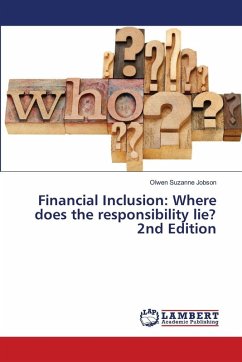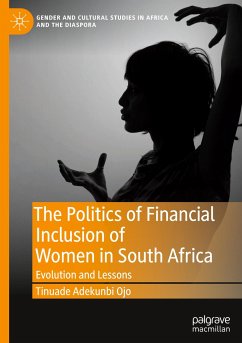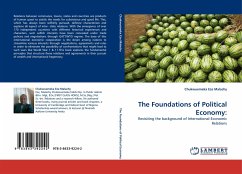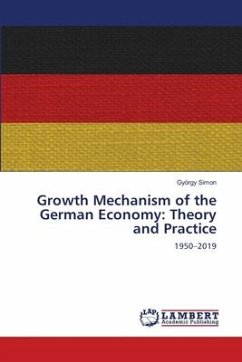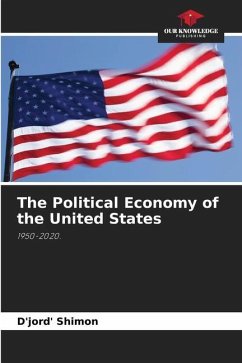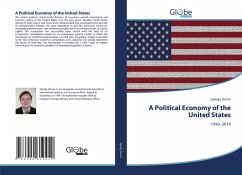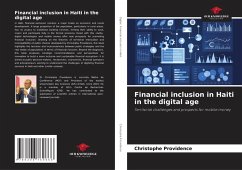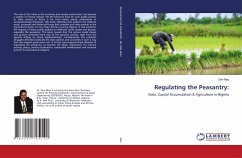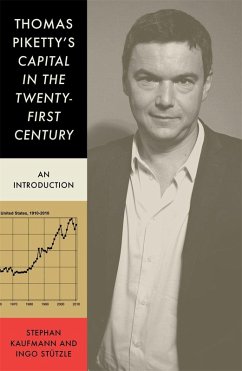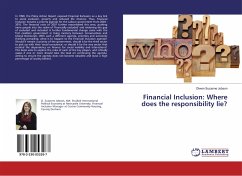
Financial Inclusion: Where does the responsibility lie?
Versandkostenfrei!
Versandfertig in 6-10 Tagen
24,99 €
inkl. MwSt.

PAYBACK Punkte
12 °P sammeln!
In 1999, the Policy Action Report exposed Financial Exclusion as a key link to social exclusion, poverty and reduced life chances. Thus, Financial Inclusion became a priority agenda for the Labour government from 2004 - 2010. The financial crisis of 2007 further exacerbated this area, pushing more people into the realm of 'financially excluded' and widening the gap of excluded and included. A further fundamental change came with the first coalition government in living memory between Conservatives and Liberal Democrats. With such a different agenda, priorities and economic thinking prevailing;...
In 1999, the Policy Action Report exposed Financial Exclusion as a key link to social exclusion, poverty and reduced life chances. Thus, Financial Inclusion became a priority agenda for the Labour government from 2004 - 2010. The financial crisis of 2007 further exacerbated this area, pushing more people into the realm of 'financially excluded' and widening the gap of excluded and included. A further fundamental change came with the first coalition government in living memory between Conservatives and Liberal Democrats. With such a different agenda, priorities and economic thinking prevailing; what is to happen to the Financial Inclusion agenda? Should it remain a priority of the government, should it be the third sector to pick up with their 'social conscience'; or should it be the very sector that created the dependency on finance for social mobility and interactions? This book aims to explore the roles of each of the key players, and critically assess if one or more should take the lead on continuing the agenda, aiming to ensure the agenda does not become obsolete and leave a high percentage of society behind.



